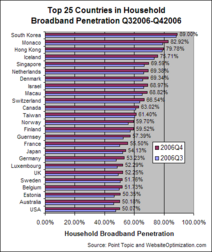 As the law firm for an English soccer league puts it in a letter
about their lawsuit against google:
As the law firm for an English soccer league puts it in a letter
about their lawsuit against google:
“HAS YOUR COPYRIGHT BEEN INFRINGED BY YOUTUBE?”Well, I write books, so I should be concerned about copyright.— YouTube class action lawsuit: Has YOUR copyright been infringed?, by Donna Bogatin, Digital Markets, zdnet blogs, May 5th, 2007
What else do they say?
The Defendants (Google, YouTube) have willfully violated the intellectual property rights that were created and made valuable by the investment – sometimes the life-long investment – of creativity, time, talent, energy, and resources of content producers other than the Defendants. The complaint asserts several legal claims against the Defendants, including direct copyright infringement, contributory copyright infringement, and vicarious copyright infringement.Well, who could argue with that? Continue reading
 I may have mentioned that the telcos and cablecos seem to like to game
legal and regulatory systems in their favor.
There’s another group of companies doing the same thing:
I may have mentioned that the telcos and cablecos seem to like to game
legal and regulatory systems in their favor.
There’s another group of companies doing the same thing:

 I wasn’t going to comment on the disconnection of
I wasn’t going to comment on the disconnection of


 Hands Off the Internet
notes that all major TV networks suddenly (since last year)
stream programs over the net, and concludes:
Hands Off the Internet
notes that all major TV networks suddenly (since last year)
stream programs over the net, and concludes:

